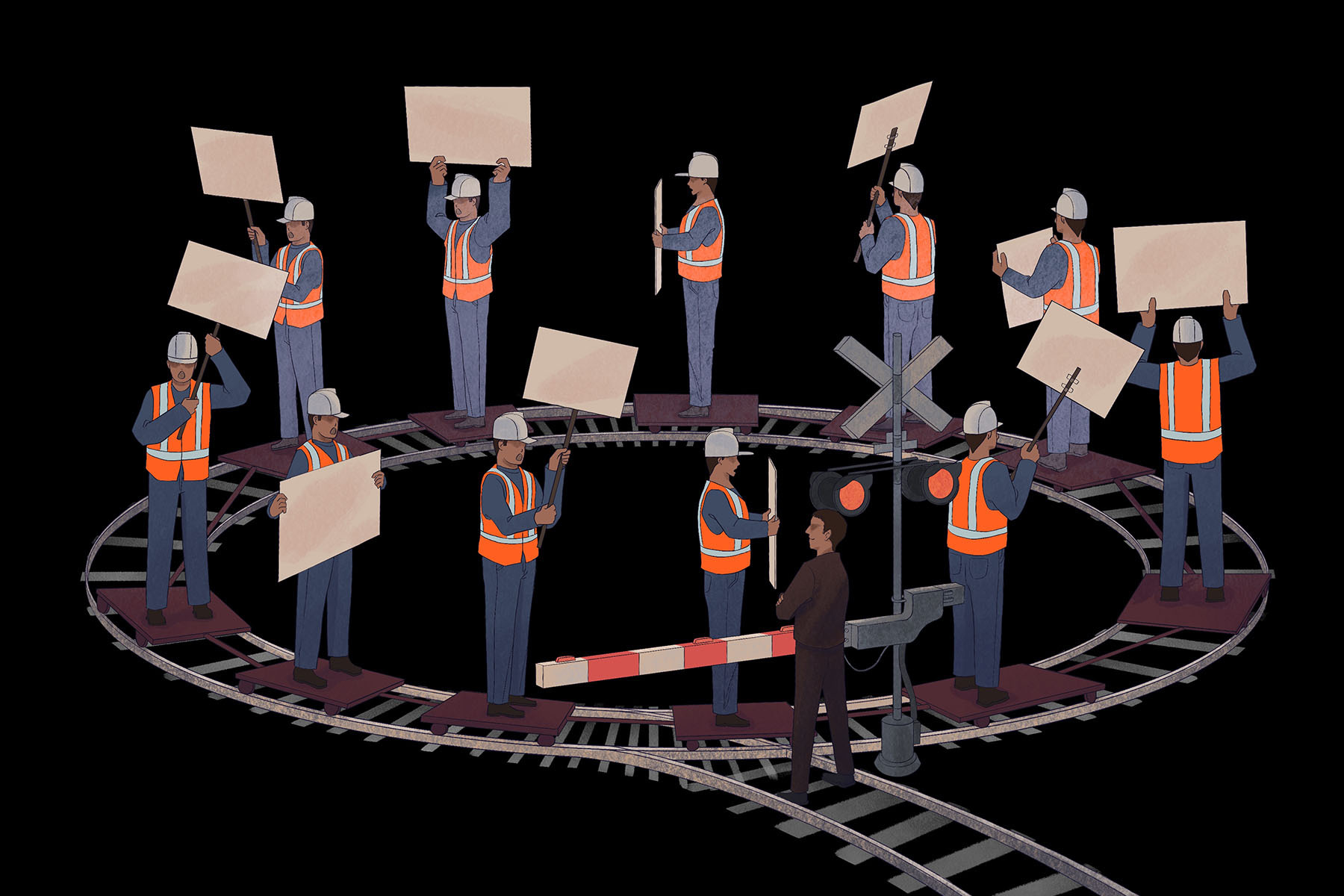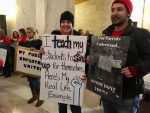As the world continues to reckon with the effects of the COVID-19 pandemic, one of the most important ongoing conversations in America right now is how the pandemic has impacted labor. Employment practices and the rights of workers, particularly those designated as “essential” and placed at the frontlines during the peak of the health crisis, have been under a spotlight as the general disregard for workers’ needs and well-being became more apparent. However, those individual needs will continue to be ignored so long as corporations can depend on the intervention of the US government to avoid the consequences of their unfair labor practices and the retaliation of their unionized employees, the most recent example of this dynamic being the recent Congressional action to avert a railroad union strike.
2022 has seen something of a rebirth in American labor rights activism and unionization efforts, exemplified in companies such as Starbucks, Amazon, and Apple. Recently, the railroad unions have been in the headlines, as four of the twelve rail unions, representing half of all railroad union workers, rejected a proposed deal brokered by the White House that included such benefits as raises and bonuses. The primary sticking point has been paid sick leave, which, in the wake of COVID-19, has been shown to be rather essential and incredibly unavailable to most American workers. Roughly 33 million workers lack paid sick leave, heightening the risk of infection and spread during the pandemic and still creating workplace environments of burnout, overworking, and poor health.
Such harmful circumstances have sparked many labor rights efforts at big companies like Starbucks, and workers are less willing than ever to put up with mistreatment since it has become clear that their employers don’t value their safety and wellbeing. Many members of Congress have been cheering on these union successes; however, railroads are different because Congress is allowed to directly interfere. Congress has the constitutional authority to regulate interstate commerce, and the Railroad Labor Act of 1926 grants Congress the power to block strikes and enforce contracts under certain circumstances, thus undercutting union bargaining power and forcing union members back to work under unwanted employment conditions. While an unpopular decision among labor activists and union representatives, the possible economic fallout of a railroad strike was deemed a sufficient concern to merit such drastic anti-union action.
This entire situation is incredibly messy for multiple reasons. A railroad strike by itself would bring much of the nation’s freight shipping to a screeching halt, but a railroad strike during the holiday season would have been a brutal blow to the US economy. Congress’ concern is valid and somewhat appreciated. However, the political element puts Congress and the president in an awkward situation. President Biden has been billed as one of the most “pro-union” presidents in United States history, but his support of government intervention to stop a strike puts him in conflict with the unions, many of which were instrumental in his 2020 presidential election win.
Republicans were arguably even less pro-union over the course of these events, being responsible for the failure of a bill that would have mandated paid sick leave for railroad workers outside of the scope of the deal. However, the contrast between President Biden’s stated stances and his actions paints him in an unfortunate light. There is a recurring theme in American politics, regardless of who is in power, of bending to the desires of corporate interests. While our convoluted filibuster-ridden legislative process is slow to enact significant change to outdated labor and business laws, corporations, banks and other firms are incentivized into reckless behavior by the government’s willingness to step in.
“Too big to fail” is a phrase popularized in America in the wake of the 2008 financial crisis. It was used by then-President Bush to explain why the US government needed to bail out various failing financial firms and banks. Essentially, a financial company is deemed “too big to fail” if it is so entwined with the global economy that its failure would result in worldwide economic collapse. Government protections to prevent such a catastrophe are reasonable precautions, but they also provide a safety net that can make these firms act as though they are invincible. If their poor decisions set them on a trajectory for failure, they can depend on the government to step in and save them, protecting them from any consequences for the foolishness.
Railroad companies are being treated in a similar fashion. Even though economic crisis has been avoided in the short-term, these companies have no incentive to course-correct from flawed employment practices and business decisions, which will eventually bring the nation to this exact same situation sometime in the future. Railroads are chronically understaffed because corporate leadership has decided that is the best way to make money. Efficiency is a virtue in the business of transportation and shipping, but not in exchange for cutting payroll and causing a mass exodus of workers into other industries for better paying jobs.
The problem that brought about the threat of a strike in the first place was that workers were being overworked and were not allotted sufficient rest. Their employers have escaped the situation with limited concessions, and the government has failed to support the needs of workers. If America desires a long-term solution to the danger posed by understaffed railroads to its economy, the government must employ its powers of intervention and legislation to bring that solution about, because clearly, the companies aren’t capable of taking care of themselves.
















